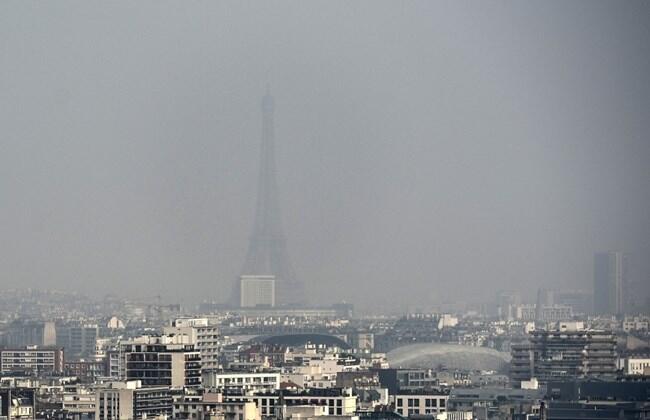The study said air pollution is not merely a health threat, but also represents “an economic aberration” costing the French state and businesses billions annually in treating illness, and financing employee sick leave, lost productivity, reduced agriculture yields and cleaning up sooty buildings and other venues. It estimated the financial impact of atmospheric pollution for health reasons at “between 68 and 97 billion euros” per year, ranging from treatment of aggravated conditions like asthma to battling forms of cancer caused by smog. It pegged the direct cost to France’s health care system at least 3 billion euros per year, with the remainder linked largely to time and productivity lost by businesses whose employees require sick leave during peak pollution periods. Outlays for nonhealth reasons like lower crop production and cleaning of blackened buildings were estimated at 4.3 billion euros. Though the report noted past efforts to battle pollution had lowered smog levels in France – especially around industrial sites – sources like ground transport and heating systems have made the problem more diffused and present at higher levels in indoor air than before. The study recommends a range of fiscal policies to encourage use of cleaner technologies, and measures to complement incomplete or inefficient regulations already in place. Pollution has become a major problem in Paris and several other French cities, whose air periodically becomes clogged with tiny floating particles that can penetrate deep into the lungs and the blood system and can cause cancer. The World Health Organization says fine particle air pollution is responsible for about 42,000 premature deaths in France each year. Agence France Presse











